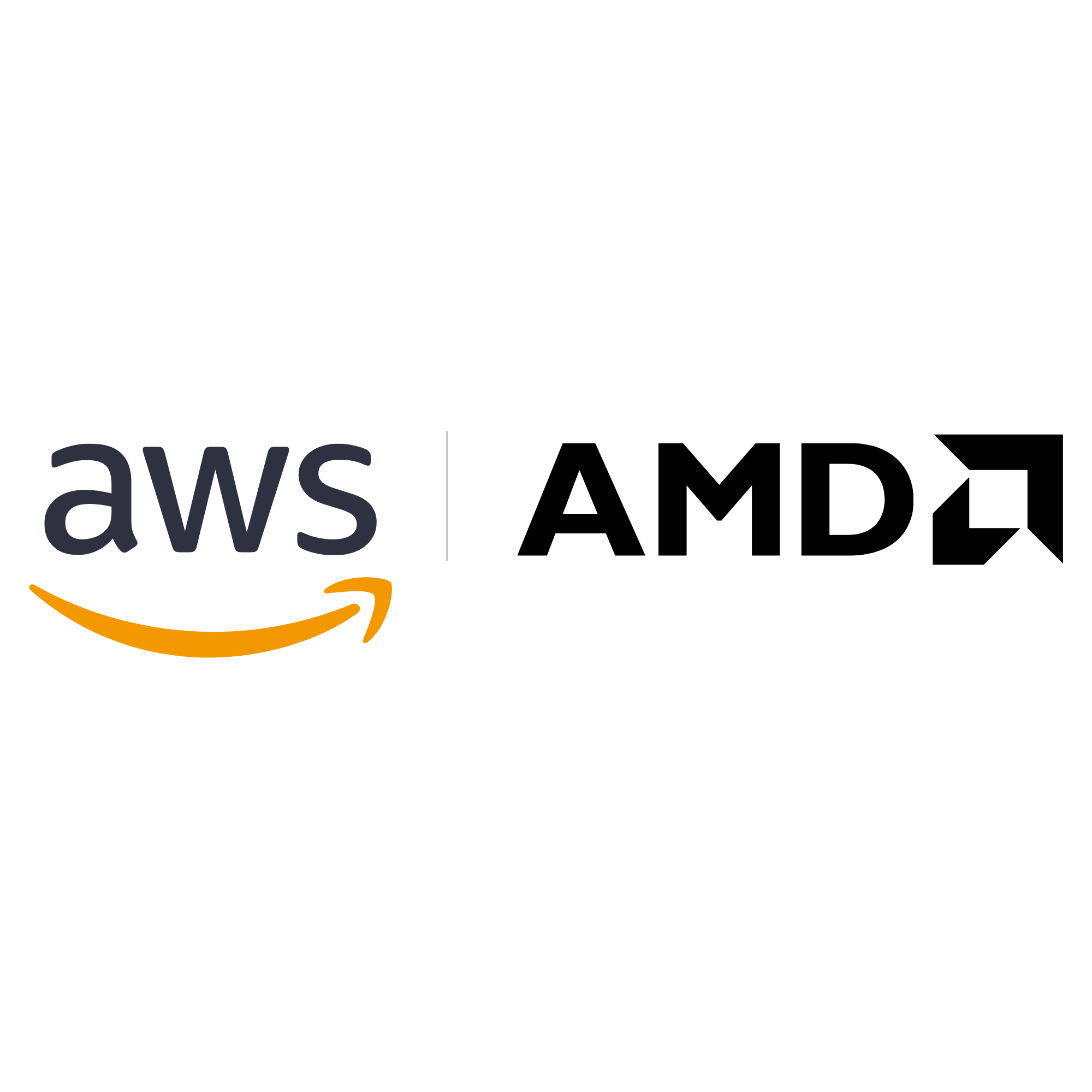
AWS | AMD
View Brand PublisherA quest for educational equity: Rocket Learning founders discuss new-age technologies to transform early childhood development
Vishal Sunil and Azeez Gupta, Co-founders of Rocket Learning are on a promising stride: to universalise early childhood education in India by offering new-age tools to both parents and educators.
With 90% of brain development achieved by the age of eight, ensuring adequate stimulation in the early years is critical to developing IQ and physical abilities.
To take this message forward, AWS Bharat Innovators Series, in partnership with AMD and YourStory, hosted a virtual session with Vishal Sunil and Azeez Gupta, Co-founders of Rocket Learning, an edtech non-profit transforming early childhood education with new tools in India’s underserved communities.
“We aim to be an accelerator in closing the country’s public-private education gap and innovate towards moving the focus from just equality of access to providing outcomes,” said Sunil, pointing to the crisis of 40 million children between the ages of three and six years not reaching their potential due to educational divides.
Highlighting their work in partnership with the government in bringing the latest in education from the world into India, Sunil said their solution is “cost effective, deep, and scalable”.
Titled ‘Closing the Readiness Gap: Scaling Early Childhood Education for Millions’, the fireside chat was moderated by Sunil PP, India & South Asia Lead: Education, Space, NPO, Channels & Alliances, Amazon Web Services.
“Fundamentally, from birth to six years of age is when a child’s IQ is getting formed to a large extent. As per global reports, you can increase it by up to five to 10 IQ points with high quality stimulation at this age, thereby making children smarter and more intelligent. And this is far beyond academic skills,” Gupta noted.
And with India’s growing mobile phone penetration, he believes there's no better time than now to leverage technology among preschoolers at anganwadis or rural child care centres.
What sets Rocket Learning apart
Firstly, Rocket Learning is reinventing teacher training and coaching, Gupta pointed out. And secondly, it is giving parents access to what the school is doing and what they can do at home - which was not possible earlier.
Traditionally, the government would get all the teachers together for three days in the beginning of the year and impart extensive training. “At Rocket Learning, we send out a daily guide to teachers—two two-minute activity videos less than 5 MB in size—on WhatsApp that they can use anytime during the day to disseminate lessons,” Gupta said.
“Continuous learning in community education is our key differentiator. These byte-sized videos might not seem like such a huge change, but [have] significantly reshaped the adaptability of technology among anganwadi workers and parents,” Sunil said.
By building the right infrastructure and creating the right policy through government collaboration, Gupta talked about how Rocket Learning aims to transform the whole look and feel of anganwadi centres as well as habits around early learning.
Scale of operations
The cost of positively impacting the lives of 2.5 million children must be kept extremely low, according to the founders.
Edtech players like Byju’s or Unacademy, Gupta noted, typically have a new solution where a transaction happens between a child and technology on a specific device. “We wanted to leverage what's already there, rather than build something new,” he said.
With smartphones already in people's hands and their partnership with the government, the cost of customer acquisition for Rocket Learning is zero.
“In fact, it's a government programme, so nobody knows about Rocket Learning. That's a big difference. In our mission to impact the lives of 50 million children, nobody should know, and that's how we want to continue,” Gupta said.
Rocket Learning has partnered with the state governments of Maharashtra, Uttar Pradesh, Haryana, Madhya Pradesh, Rajasthan, and is in early partnerships with Punjab and the south.
Leveraging AI to create real impact
“We’re taking a very human-centric approach to AI design,” Sunil said. Talking about Rocket Learning’s automatic worksheets, he highlighted how they are creating personalised engagement pathways for each parent and child through localised content in key Indian languages.
He further shared insights on their collaboration with MIT's Abdul Latif Jameel Poverty Action Lab (MIT-J PAL), a development research organisation, to test its intervention for early childhood education with a randomised controlled trial (RCT), the gold standard of impact evidence.
“Impact for us is almost analogous to revenue. Our partnership underscores the importance of evidence-based interventions in making a lasting impact on children's lives,” Sunil said.
From engaging public policy to driving adoption
Gupta mentioned how Rocket Learning’s solution and technology is modelled on ‘business to government to consumer’.
“When we started, we took upon the value of engaging with the government and policy makers to set up a policy framework around early learning,” he said, adding that the National Education Policy had a mandate, but didn't really create a policy. “We partnered with the Ministry of Women and Child Development and the Department of Education to translate this mandate into policy,” said Gupta.
Since its launch three years ago, the non-profit has empowered anganwadi workers by inculcating WCD Ministry’s POSHAN Abhiyaan, and enabled mothers to get involved in their child’s foundational education.
POSHAN Abhiyaan—with emphasis on ‘Poshan bhi, Padhai bhi’—was launched in 2018 to improve both nutrition and learning among children as well as mothers.
“From a policy perspective, there has been more effective training, extensive use of digital tools, measurement of early childhood education, and increase in budgets,” he added.
The Bharat Innovator Series serves as a platform for founders, innovators, policymakers, and thought leaders to engage in meaningful discussions about technology opportunities. This initiative aims to foster dialogue, address challenges, and explore synergies for the future. The series incorporates webinars, podcasts, and events that spotlight the remarkable work of Indian innovators spanning various domains.







